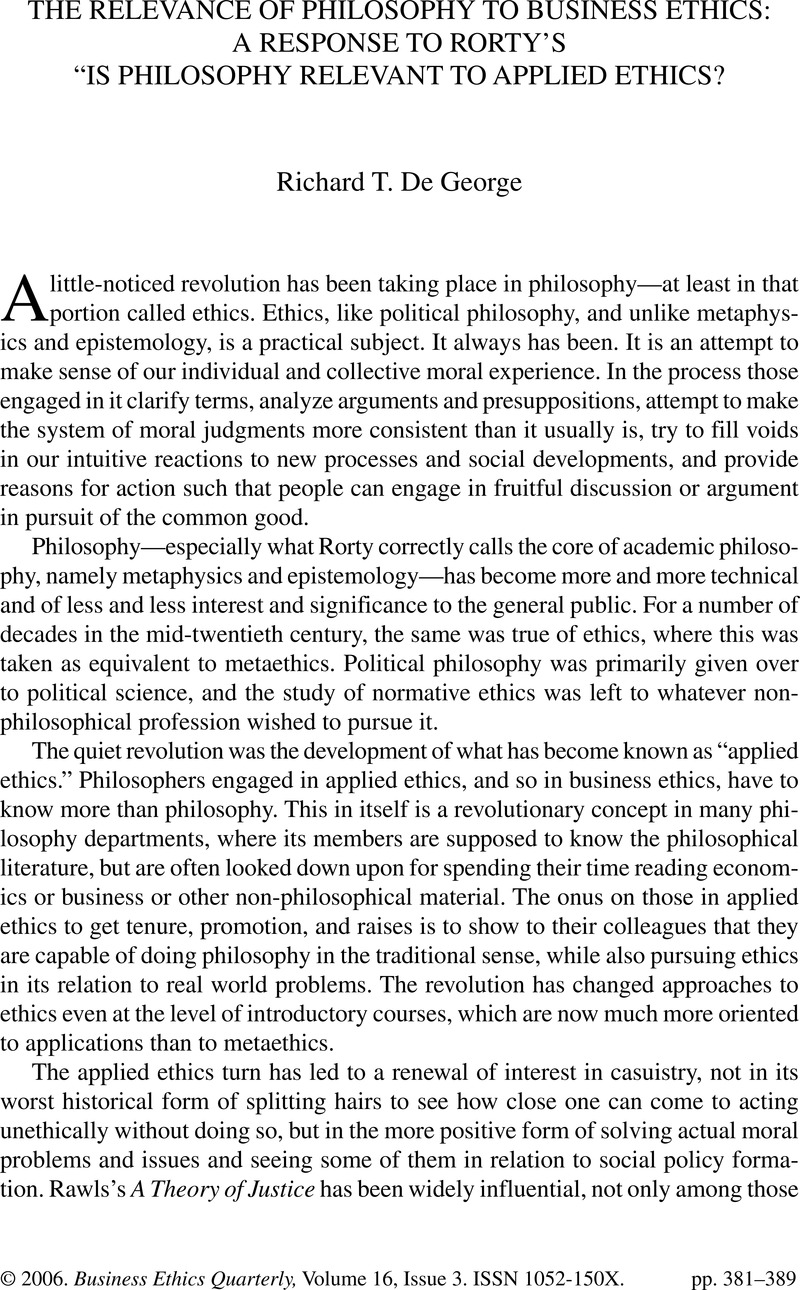Published online by Cambridge University Press: 23 January 2015

1. “Theses on Feuerbach,” Thesis XI, available in The Marx-Engels Reader, 2nd ed., ed. Robert C. Tucker (New York: W. W. Norton & Company, 1978), 145.
2. Ibid., 95.
3. Some have done this by combining utilitarian and deontological approaches in their analysis of particular problems, some have adopted a pluralistic position in ethics, still others have opted for an Aristotlean or a pragmatic or some other approach to issues, assimilating the contributions of those, for instance, working on virtue ethics either as an alternative to or as an addition to the traditional deontological and utilitarian approaches.
4. “The History of Business Ethics,” in The Accountable Corporation, ed. Marc Epstein and Kirk Hanson (Westport, Conn.: Praeger, 2005), vol. 2, pp. 263–67; a version of it is available online: Richard T. De George, “A History of Business Ethics,” paper presented at the Conference on The Accountable Corporation, Santa Clara University, Feb. 17–19, 2005, available at http://www.scu.edu/ethics/practicing/focusareas/business/conference/presentations/business-ethics-history.html (Nov. 8, 2005).